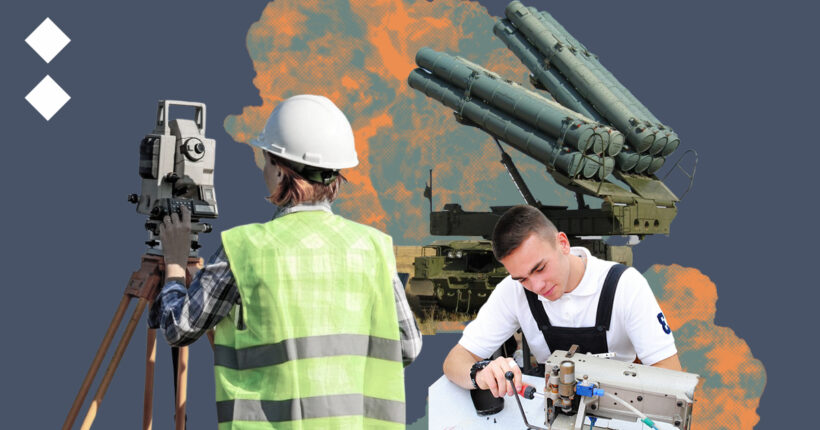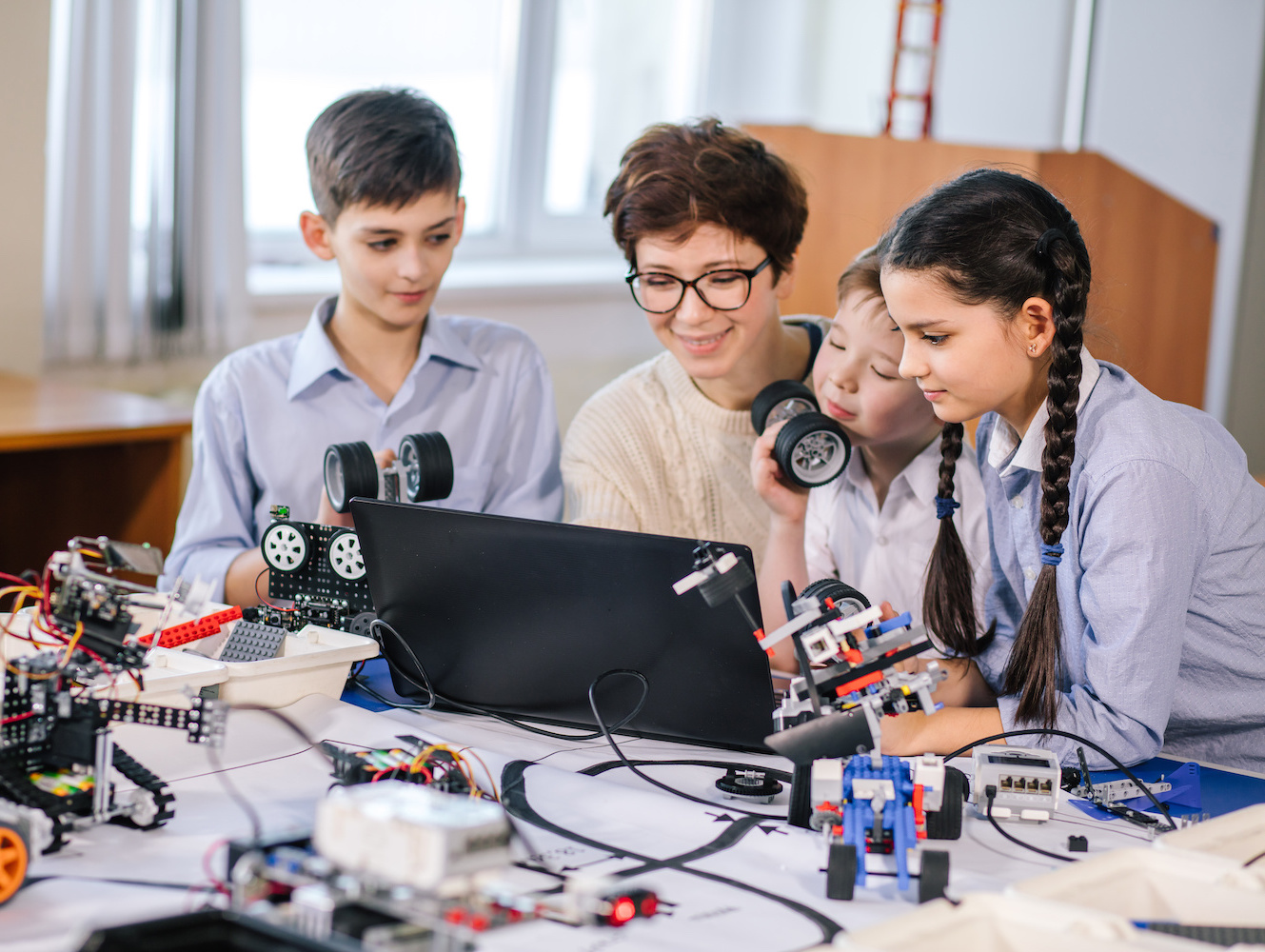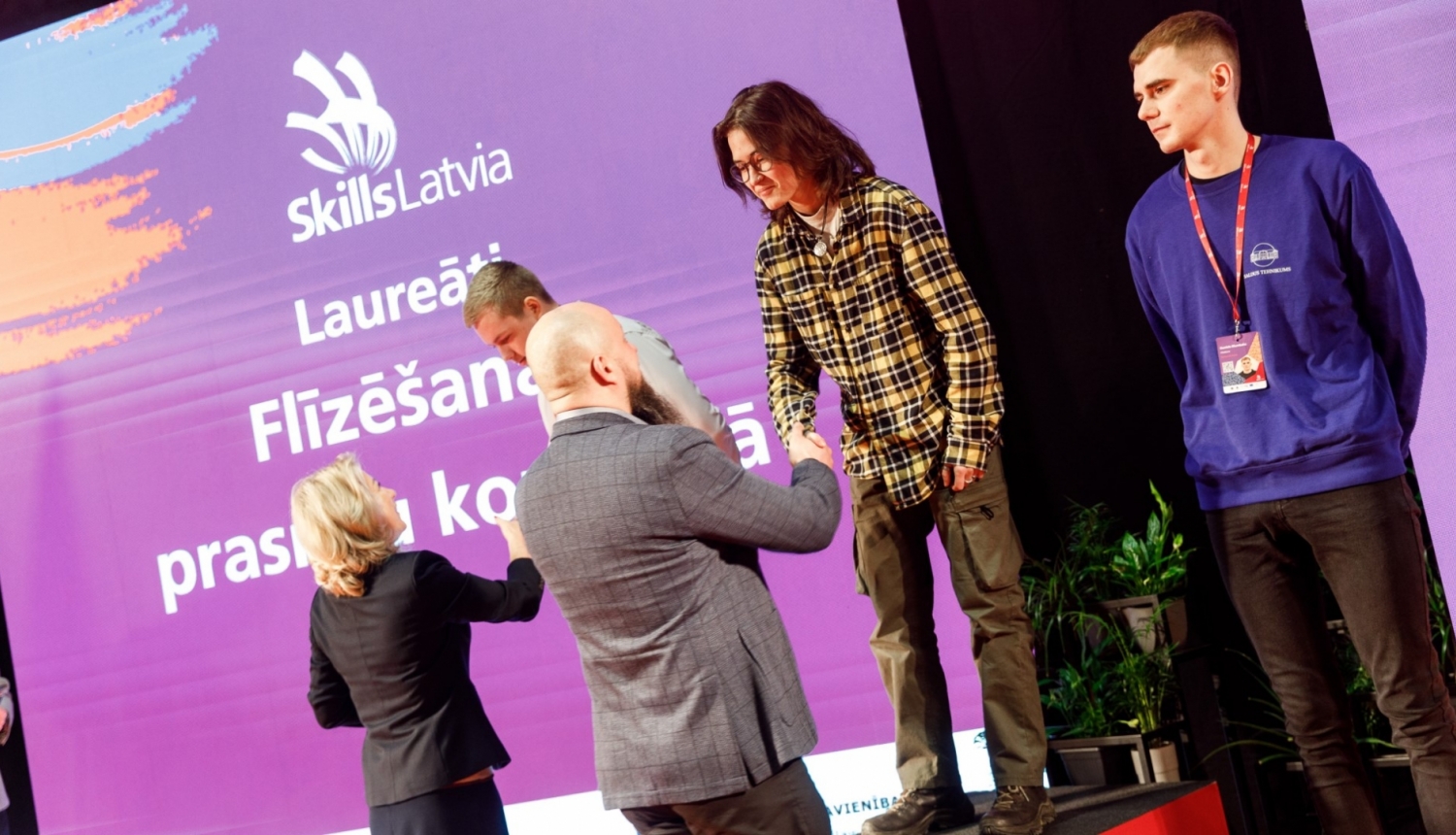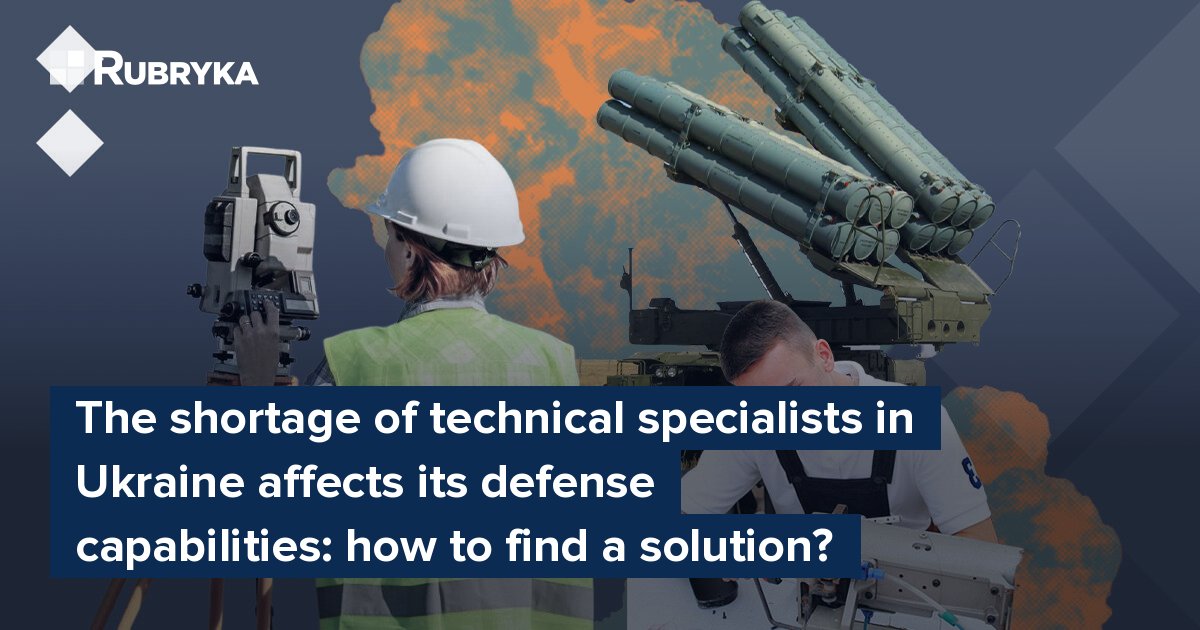
Ukraine is facing a shortage of technical specialists. Now, in martial law conditions, this is a real hole in the economy and defense capabilities of the country — from the restoration of its own production of military equipment to the reconstruction of the energy infrastructure.
Increasing the country's competitiveness at the global level, creating innovations, providing itself with the necessary technologies, and exporting them to the international market are just some of the benefits for the state from the work of highly qualified technical specialists. The question arises: how can young people be encouraged to study a technical specialty so that these advantages will be realized soon? Rubryka explores foreign experience.
What is the problem?
Contrary to the state's significant demand and obvious need for power engineers, mechanics, and other specialists, young people are in no hurry to go to technical specialties, except for certain industries, mostly in the IT direction.
According to the 2022-2023 admissions year results, applicants submitted the most applications to humanitarian specialties (law, philology, journalism, management), computer sciences (programming, cyber security, etc.), and software engineering.
For comparison, 35,844 entrants applied for the law specialty for full-time study; for industrial engineering — 4,433 applications; for nuclear energy — 338; for hydropower engineering, hydro-technical construction, water engineering, and water technologies — 438.

Illustrative photo
The defense industry was among the first to experience a shortage of technical specialists. Primarily due to the need to restore and create our own production of weapons in large volumes and service imported military equipment from the allies.
In her interview with Channel 5, Mariia Berlinska, founder of the NGO Aerial Reconnaissance Support Center, notes that there is a great need for drones. Unfortunately, the Ukrainian manufacturer is 90% dependent on components from other countries. Ukraine has not developed its industry. Now, Ukraine covers the lack of technology with people. She also adds: "I often repeat that the main person today is an engineer because one engineer can make a strike system that can hit targets and save tens of thousands of lives."
Earlier, Rubryka reported about the shortage of personnel in the construction industry, where experts are concerned that potential applicants are currently abroad, "therefore, it is possible that the universities will not have the appropriate number of students, and subsequently, the appropriate construction personnel."
Because of the war, there is a growing demand for prosthetists, biomedical engineers, construction workers, specialists in rocket engineering, and chemical and biological defense — to protect Ukraine now and to rebuild it in the future.
It is necessary to train a new generation of technical specialists who would be able not only to cope with all the challenges but also to make the state even more powerful and innovative.
What is the solution?
Young people do not choose technical specialties for several reasons: lack of prestige, low pay, lack of career guidance, and a basic understanding of what to do with their future. In some places, the low level of teaching of exact and natural sciences in schools also contributes to the fact that applicants are more inclined to choose humanities as something straightforward and simple.
Throughout their history, leading countries have developed effective strategies for attracting young people to technical specialties, understanding that they act as the drivers of innovation and economic independence of the country. They determined that the problem is formed on many levels and must be solved comprehensively.
How does it work?
Accessibility. In Iceland, children are taught to be heroes and heroines.
Gender stereotypes are often what stop teenagers from pursuing their dream profession. Lack of role models, division in society into typically "male" and "female" jobs, and discrimination do not allow young people to fully reveal their potential.
For several years in a row, Iceland has consistently taken first place in the world ranking of gender equality. The country understands that it receives additional benefits by involving all layers of society in technology.
The equal status and rights of women and men are fixed by law. Gender equality is taught and practiced in kindergartens, schools, sports, and educational classes. The study materials and textbooks undergo thorough examination and are designed so that they do not discriminate against any gender.

Illustrative photo
Children are encouraged to become who they dream to be. Girls can be engineers and rocket developers, and boys can be cooks or kindergarten teachers. After all, the country will only win when everyone can realize their own potential and realize their full potential without facing additional obstacles in the form of judgment from the side.
Rubryka investigates how gender stereotypes are being fought in Ukraine — read our article about the STEM initiative for girls and women.
STEM education and the use of technology in Singapore schools
For a long time, Ukrainian educators have been paying attention to the inefficiency of the current system of teaching mathematics and other exact and natural sciences in schools, which leads to students' misunderstanding of the material, low test results, and, accordingly, the low desire of students to connect their profession with this subject. Schools are not equipped with laboratories, so they do not have the opportunity to pay enough attention to the practical part, and the curriculum is overloaded. Last but not least, the COVID-19 restrictions and the full-scale war played an important role, which moved the educational process online and worsened the level of students' knowledge.
The experience of leading countries shows that introducing the STEM system and radically reviewing educational programs is a solution for schools.
STEM (Science, Technology, Engineering, Mathematics) is an educational approach created to popularize science through the availability and practicality of the knowledge obtained. Teachers in this system do not give a ready-made solution but help students build their own.
This approach teaches students to think critically and deeply, better understand how the world is organized, and develop soft skills. Tasks integrate different school subjects, clearly showing that everything is interconnected.
Research shows that using STEM in teaching mathematics promotes critical thinking and motivation to learn.
During the Asian financial crisis, Singapore shifted its focus in the education system to innovation, creativity, and research. In 1997, the slogan of the Ministry of Education became: "Thinking Schools, Learning Nation".
Singapore has modernized its education systems at all levels, from kindergarten to higher and professional education. The government has invested in the modernization of laboratories, improving infrastructure, training and professional development of teachers, and purchasing modern equipment. It also reviewed the curriculum, focusing on practice, better learning of the material by students, and the use of technology.

Illustrative photo
Students create their own code, explore virtual spaces, visualize mathematical formulas (Singaporean development — model method for math), and learn scientific concepts through play and application.
As a result, Singaporean students rank among the best in PISA (Programme for International Student Assessment — a test that measures reading skills and knowledge of mathematics and science) and TIMSS (Trends in International Mathematics and Science Study), and the country itself is one of the most significant technological giants.
The dual system of vocational education in Germany
Vocational and technical education provides an opportunity to obtain labor qualifications and, after graduation, to decide — to go on to get a higher education or to work at an enterprise and earn the acquired knowledge and skills.
An important priority for young people is the opportunity to find a job in parallel or immediately after studying. The dual "double" system gives such a chance.
Training occurs based on two educational institutions — directly at the vocational school and the enterprise. Students study in production 80% of the time, and the rest of the time is devoted to theoretical lectures. Such an education provides an opportunity to obtain labor qualifications and practical skills the market needs.
Germany integrated the dual system back in the 1970s. The mechanism has become so effective that now the dual system is called one of the three reasons for the low level of unemployment among German youth.
The system has advantages for both students and employers. The first ones get practice from masters and mentors, use the acquired knowledge, and, provided they perform their duties well, get a job immediately after completing their studies. Employers get an already trained worker who understands all the processes.
However, the system also has its drawbacks. First of all, the economic part. The company spends a lot of money on student training. However, students do not always choose to stay at the workplace after completing their internship. Secondly, students often receive incomplete training due to the narrow specialization of the company.
Educational institutions are updating the mechanism of dual education, considering these factors, and offering new solutions. For example, the cooperation of the main company with partner companies — a student signs a contract with one company, and the company engages partners for additional profiling. Contract education — the student enters into a contract with the company for training without a further employment contract.
Dual education is changing, but the internship system itself is a solution necessary for quality professional training.
Why does the state budget of Latvia finance the department of skills competitions
The State Agency for the Development of Education of the Republic of Latvia has a separate department responsible for organizing skills competitions within the development framework of vocational education. One of these is SkillsLatvia — a national competition for students of vocational institutions in 16 categories.

Photo from the competition. The source is the website of the State Agency for Educational Development of the Republic of Latvia
The project is focused on supporting students in their career development. The participants show their skills, and the event guests can try themselves in the presented skills, explore the latest in vocational education, and undergo career guidance. Interestingly, the competition is not limited to Latvia: after the victory, the team goes to represent the country at the world level — the WorldSkills Competition.
The competition sponsors are Latvian technical schools, large-scale trading companies, for example, Caparol or IKEA, technology manufacturers, and state institutions. This is an example of the union of the state, business, and educational institutions for a joint contribution to professional education development.
The event itself was created in 1946 in Spain, which experienced a shortage of skilled workers after World War II. The purpose of the competition was to awaken in young people the spirit of competition and the desire to become the best in their field. Spectators had the opportunity to discuss the results and learn about various professions and subtleties of work.
The most important thing is that such competitions increase the prestige of professions, contribute to the modernization of vocational educational institutions thanks to the integration of international experience and standards, help students to assimilate the acquired knowledge in practice, and strengthen ties with employers.
How American movies raise the prestige of professions
A mass product affects people's choices and behavior. In particular, Hollywood films have left an impression on more than one generation. Cinema was often used as a tool for propaganda and promoting certain ideas.
However, this is not always a bad thing. Positive propaganda can motivate and inspire achievement or help raise the ratings of important professions. For example, the American movie Top Gun, released in 1986 and about the pilots of the United States Navy Academy, significantly increased audience awareness and the number of people willing to join the navy by 8%.
The situation is similar with the TV series "The X-Files," which highlights the work of FBI agents on paranormal and mysterious situations. The main character, Dana Scully, one of the most famous female scientist characters, explains all the phenomena from the point of view of science. According to a survey by the Geena Davis Institute on Gender in Media, more than 60% of women say that Dana Scully "increased their belief in the importance of STEM."
After watching the "Doctor House" TV show, on social networks Reddit and Quora, users actively discussed how the series influenced their desire to become doctors.

Photo — the cover of the "Doctor House" TV show
Successfully written charming and interesting characters become role models, arouse interest in the field for which they are created, and inspire viewers to try their hand in real life. High-quality film promotion is a good mechanism for raising the prestige of the profession and the people who work in it.
How Poland encourages students to engage in research in higher education institutions
Ukrainian students who enter higher education institutions because they want to do science and explore their specialty more deeply often complain about the lack of high-quality, practical training. The problem is not only outdated equipment but also outdated methods.
Nadiia, a biomedical student, studies at one of the best universities in Poland. She shares: "The minus of Ukrainian education is the lack of practice at a sufficiently interesting, deep level and a certain scientific vision."
In Polish universities, students can apply for a grant (funding from the university) for their own scientific research, which they conduct together with a scientific supervisor. The research may not be groundbreaking, but such experiences develop students' scientific understanding and encourage further work. They learn to analyze, prescribe research, report on it, and make publications or conferences.
"My specialty in Poland is quite experimental. The entire master's program is built on research activities, learning how to apply and combine new methods in science. Each teacher deals with a very narrow field: one specific molecule, its use in one specific disease," says Nadiia.
Scientific circles based on interests are common in Poland: participants meet, plan research, and share the articles they have read with each other. Conference culture is also widely developed. The student says that even adults take a vacation to come, study, and meet people. Many graduate students and young people go three to five times a year to summer schools because it is believed that most of the cool new knowledge you get is not at the university but on the way out. "From such schools, I always brought not only knowledge but also a bundle of contacts, and then we began cooperating outside the school."
Modernization of higher education is important because it is here that students begin to create science and take their first steps toward realizing unique developments.
How will it work in Ukraine?
Singapore made its decisive decisions in a state of economic crisis, and the first competition for vocational education students was created during the reconstruction period after World War II. The experience of various states shows that crises require decisive action.
Ukraine will need not just to implement the practices of other countries but to rethink and find its own strategy. However, based on the knowledge of the best reforms and successful cases, we can already create solutions and put them into practice.








